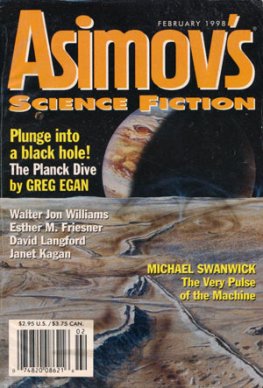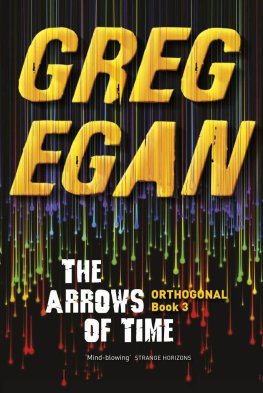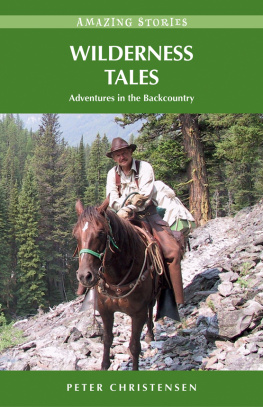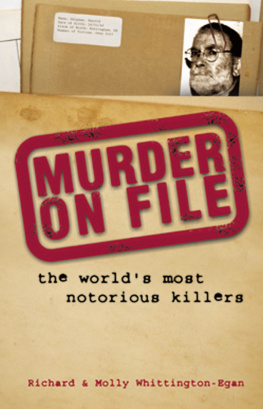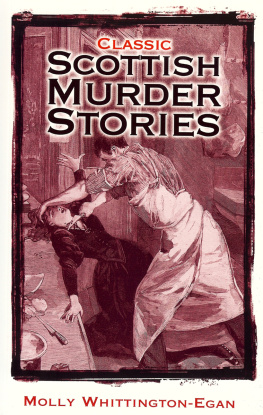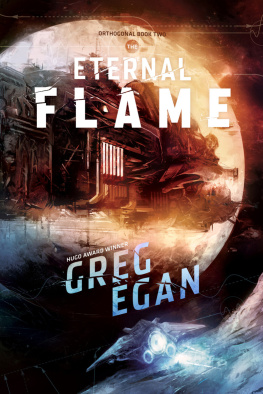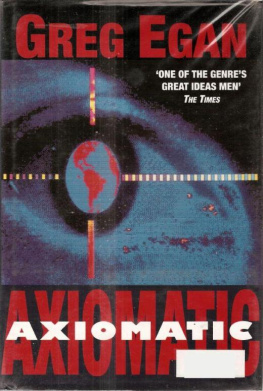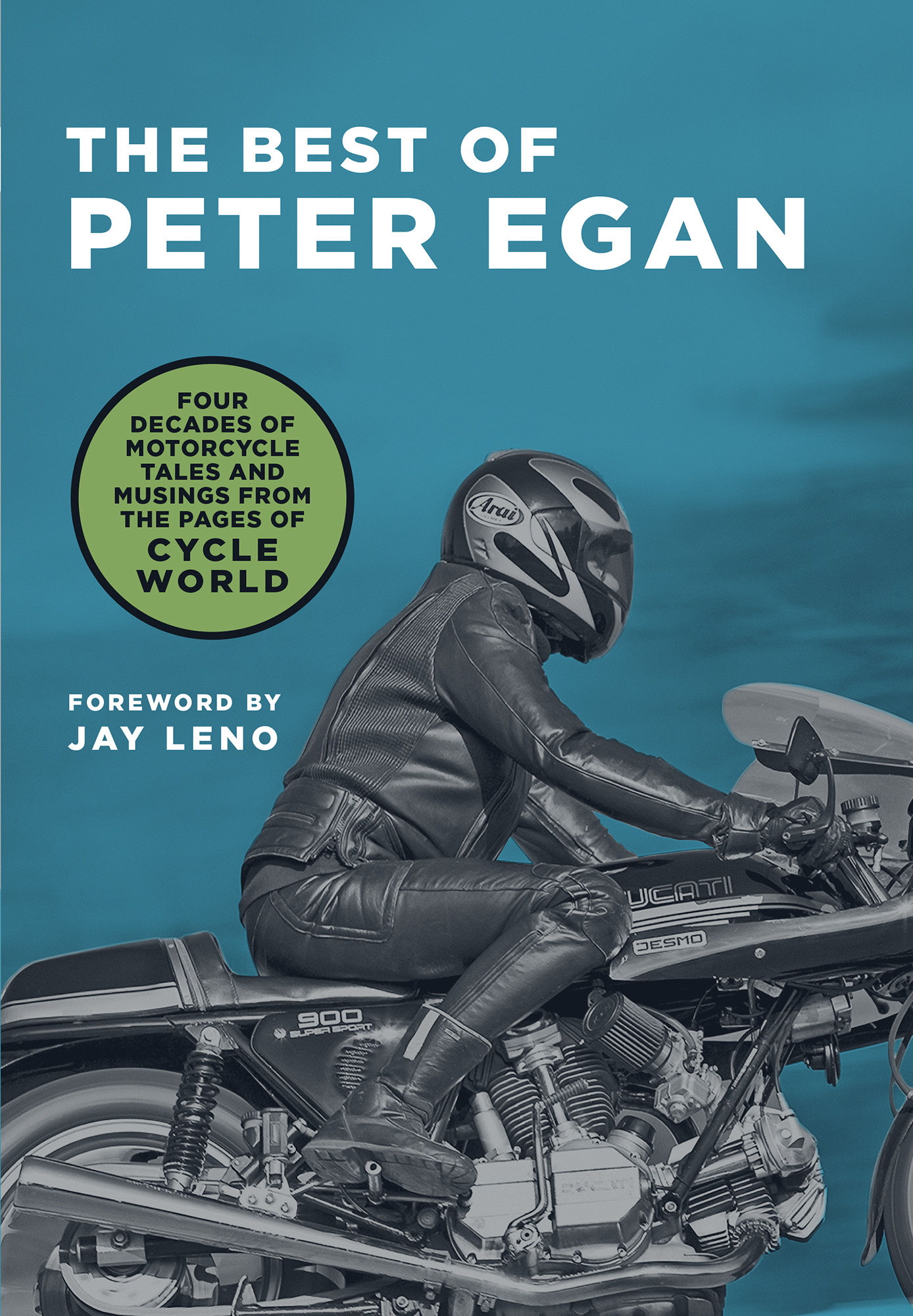Contents
Guide
FOREWORD // JAY LENO
It was an honor to be asked to write this foreword because I was a fan of Peter Egan long before I was a friend. Motorcycles are emotional machines, and finding people who can write about them without being overly effusive or ridiculously introverted are hard to find. The two best pieces of motorcycle journalism Ive ever read are The MintT. E. Lawrences account of his days in the RAF with his Brough Superior motorcycleand anything written by Peter Egan.
One never gets the feeling that Peter thinks he is a better rider than you. He makes you feel like he is you. His pieces are never about the fastest or the best, but about the journey. If your spouse cant understand why sitting in your garage amongst your machines can give you solitary peace, give them this book. What is it about old, leaky, hard-to-start British machinery that we find irresistible? Its all in here. What is it that guitars and motorcycles have in common? Is it that they are both singularly solitary pursuits that we can never quite truly master?
I am not a meditation-type guy, yet when I ride a motorcycle I understand how meditation works. Reading this book, I feel like motorcycles are Peters meditation and his thoughts and feelings are revealed in these pages. His are the only travel pieces that I read. Thats because Im one of those people who believe that what Im riding is way more important than where Im going, but in Peters writing the motorcycle is never just the conveyance, its the companion. Plus, I love the fact that he has written about motorcycles for more than fifty years without ever once using the word bro.
INTRODUCTION
A Summing Up
The novelist D. H. Lawrence once said, Its better to be born lucky than rich, and I have to agree. Ive never had a chance to check out the rich side of that equation, but I certainly got lucky back in 1977, when the Editor of Cycle World, Allan Girdler, bought my first freelance story, which was about a Norton breaking down in Montana while my wife, Barb, and I were heading for the West Coast.
At the time, I was a UW Journalism school graduate and Vietnam vet, working as a foreign-car mechanic in Madison, Wisconsin. The shop, Foreign Car Specialists, was a hotbed of road racing activity, and I spent most of the seventies there, racing a couple of sports cars as well as a Honda CB400F in WERAs 400 Box Stock class. I loved the racing life at FCS, but I was also spending a lot of my spare time trying to vindicate my lost student years by writing books and magazine articles, and I had a huge stack of rejection slips to prove it.
So Editor Girdlers acceptance of my touring story was very good news indeed. After that, I managed to sell CW four more touring stories and was then offered a full-time job at the magazine in 1980. Barb and I sold our house in Madison and moved to Newport Beach, California, and at the ripe old age of thirty-two I had my first journalism job.
As an introduction to magazine world, it would be hard to beat having Allan Girdler as your first editor. He was (and still is) funny, fair, and a colorful writer, with a veteran newspapermans conviction that the readerand the truthalways comes first. It was also a golden era for the motorcycle industry and the magazine business, with an endless stream of new, exciting motorcycles to test and a huge Baby Boomer audience to buy and read about them. Good times.
And when Allan retired from CW, l was invited to join the staff of our sister publication, Road & Track. The new Cycle World editor, David Edwards, then asked if I could also contribute a monthly column and an occasional feature story to CW, so I suddenly found myself actually paid to participate in my two favorite activities. Proof, I guess, that luck is just fortuitous timing that can never be repeated.
In 1990, Barb and I moved back to Wisconsin and bought a place out in the country, partly to escape the Southern California traffic and partly so I could build a large heated workshop to restore old cars and bikes, which I am still doing twenty-eight years laterwhile also working as a freelance contributor to both magazines.
And during the years since we moved back, Ive been able to enjoy a lot of motorcycle traveling with David Edwards and the editor who succeeded him, Mark Hoyer, both good friends and great traveling companions. And thats been, perhaps, the best part of this jobto develop a fascination with parts of the world and then concoct a plan to go there, preferably on a motorcycle with which you are also fascinated. These trips, often with Barb along, have taken us to the Alps, New Zealand, the Isle of Man, Ireland, England, and all over Europe, Mexico, Canada, and the US.
The American travel stories, some readers may notice, often have something to do with music. Im a Blues fan and I play the guitaras best I canin a garage band that shares a floor space with my car and bike projects. So naturally my first long road trip for CW was a late-seventies musical odyssey on my Honda 400F down Highway 61 through Memphis and the Mississippi Delta to New Orleans. Two years ago, I repeated parts of this trip with editor Mark Hoyeranother hardcore music buff and guitar playerwhen we rode a couple of new Indians from Memphis to the Big Easy. Cant stay away from that part of the country. I guess its the music, the food, and the aroma of French roast coffee at Caf du Monde.
But perhaps the best part of this lifetime of riding bikes has just been the people. Barb and I threw a big party for my 70th birthday a few months ago and realized that about 70 percent of our friends on the guest list had some connection with motorcycling, without which we probably would never have met. There were some car racers, musicians, and airplane pilots (our other vice) in there as well, but bikes were the glue that seemed to hold it all together. I have a self-aggrandizing theory that a simple willingness to get on a motorcycle and head out into the world separates us from that part of the population that is how shall we say it? just a little too careful.
Of course, the best stroke of luck Ive had in motorcycling was meeting Barbara, who had a Wards-Riverside Benelli 125 when I met her in college. A little story here:
I quit school in the middle of my junior year and joined the army. When I came home from Vietnam, married Barbara, and I went back to the UW to finish my last three semesters. Id sold my Honda CB160 while I was overseas, so I had no motorcycle. Couldnt afford it; the GI Bill, it seemed, didnt pay for motorcycles. Barb took a loan out from the credit union at the hospital where she worked as a physical therapist and bought me a brand-new Honda CB350 as a birthday surprise. I was speechless, for once. And back on the road.
So, if I had to pick just one story or column to put in this book, that would be it.
And its in here, along with some other good memories. Motorcycling is one of those rare sports where you can look back on your life and say, literally, its been a great ride.


